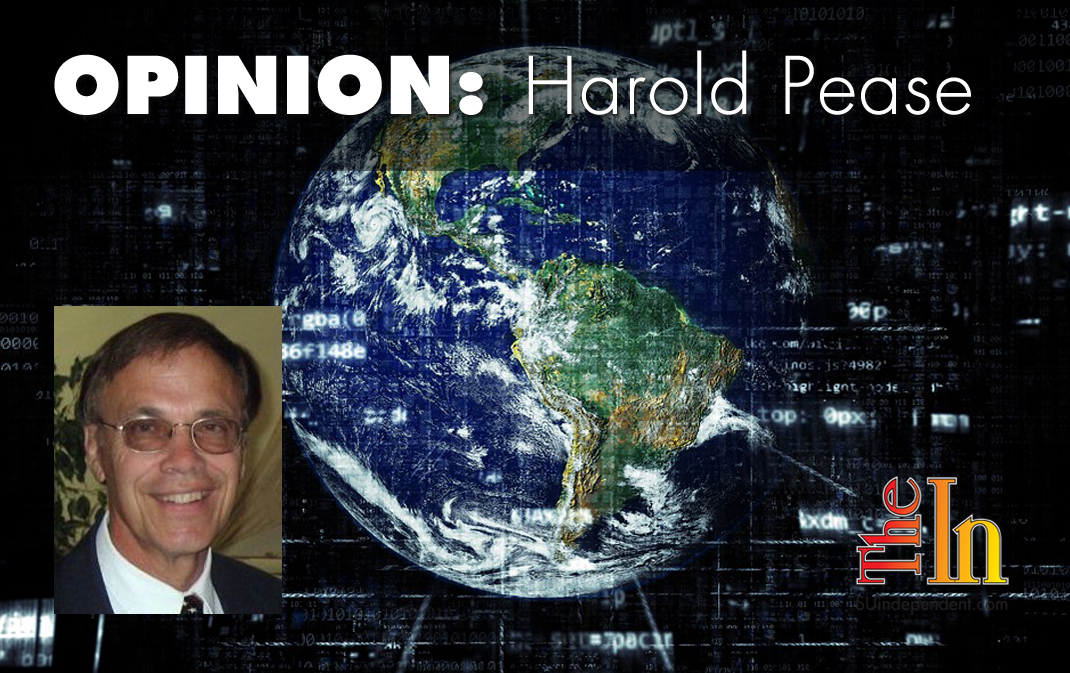 The globalists behind the American Empire
The globalists behind the American Empire
For most of a hundred years, no candidate for president obtained office without Council on Foreign Relations, or CFR, approval. In time, most Americans came to realize that something was working behind the scenes without their interests as first consideration and that both major political parties reflected this something. Initially no one could put their finger on it, so generic names like “internationalist,” “world government,” “eastern establishment,” “new world order,” and “world order” came and went over the decades, each replaced when recognized as being merely a synonym for the unpopular world-government philosophy. “Globalism” is the favorite term today, but “establishment” is still used as it came to have a double meaning: long-term service as well as world government.
The establishment, in the informed sense, is the moneyed elite capable of bringing to candidates the millions of dollars that are needed to win if they can rationalize selling their souls to the American Empire wanted by the globalists. Their people have infiltrated both political parties, and they own the major media outlets. Thus, their influence over presidential candidates for over a hundred years is never really covered, but all candidates know of their influence and power.
All presidents from Herbert Hoover on have either been members of or had an approving relationship with the Council on Foreign Relations, housed in New York City. This is the real establishment. When a president is not a member himself, his vice president is. Barack Obama, although supported by the CFR, wasn’t on its published membership list, but Joe Biden was. Since the late 1920s, virtually all of our secretaries of state, United Nations ambassadors, and ambassadors to Russia and China have been members of this Wall Street special interest group. Moreover, CFR members largely filled the majority of presidential cabinets through 2016.
Even before the Council on Foreign Relations was organized formally, President Woodrow Wilson, in his 1913 book “The New Freedom,” wrote of his experience with this hidden force. He wrote, “Since I entered politics, I have chiefly had men’s views confided to me privately. Some of the biggest men in the United States in the field of commerce and manufacture, are afraid of somebody, are afraid of something. They know that there is a power somewhere so organized, so subtle, so watchful, so interlocked, so complete, so pervasive that they had better not speak above their breath when they speak in condemnation of it.”
No special interest group has had more impact over foreign policy than the Council on Foreign Relations the last 100 years, leading many to question if we have but one political party in the United States with two arms. This is why there has been little difference in foreign policy between Democratic and Republican presidents. They got their advisers from the same Wall Street special interest group, the CFR. They all supported extensive foreign aid, policing the world with over 800 military bases in other lands, and continual wars without declaration or pre-established end. They all supported international trade agreements that enhanced the power of the United Nations over the U.S. and exported jobs formerly held by Americans. They all supported the bank bailouts and their management of the money supply through the bankers’ private Federal Reserve Bank and opposed its being audited. They all supported problem solving on the federal or international level rather than the state or county levels.
Notable political scientist Lester Milbraith observed, “The influence of the CFR throughout government is so pervasive that it is difficult to distinguish the CFR from government programs” (“Domestic Sources of Foreign Policy,” p. 247). Prominent political scientist Thomas R. Dye wrote, “The history of CFR policy accomplishments is dazzling,” then traced in detail its dominating role in foreign policy accomplishment from the 1920s through the George Bush Administration from their own boasts of success in Council on Foreign Relations Annual Reports (“Who’s Running America? The Bush Restoration,” p. 188).
What is wrong with this “secret combination” of high finance, military adventurism, benefiting media, and power-lusting politicians assembled in New York City to promote globalism? The Reece Congressional Committee said it best when it noted that its productions “are not objective but are directed overwhelmingly at promoting the globalism concept.” How powerful was it by the time Congress first discovered its influence in 1954? It had come, they wrote, “to be in essence an agency of the United States government, no doubt carrying its internationalist bias with it.” (Pp. 176–177).
Politics appears to be divided between two warring political parties, but because of the same shared source of direction and pool of advisers, it is hard to believe that at the top we are really divided at all. Presidents have far more commonality and bipartisanship than has been portrayed in the establishment’s media.
Again, the principal organization of the moneyed establishment, the CFR, is deeply embedded in both political parties, and it owns the major media outlets, which deny coverage to competing political parties and elevate “their” sympathetic candidates through the nominating process of each party. Americans then get to choose which CFR-approved candidate they prefer. It may be the greatest show in America. We call it a free election, but the options they manage. For a hundred years, no candidate for president obtained office without CFR approval. For the moment, its power seems to be permanent — for the moment.



